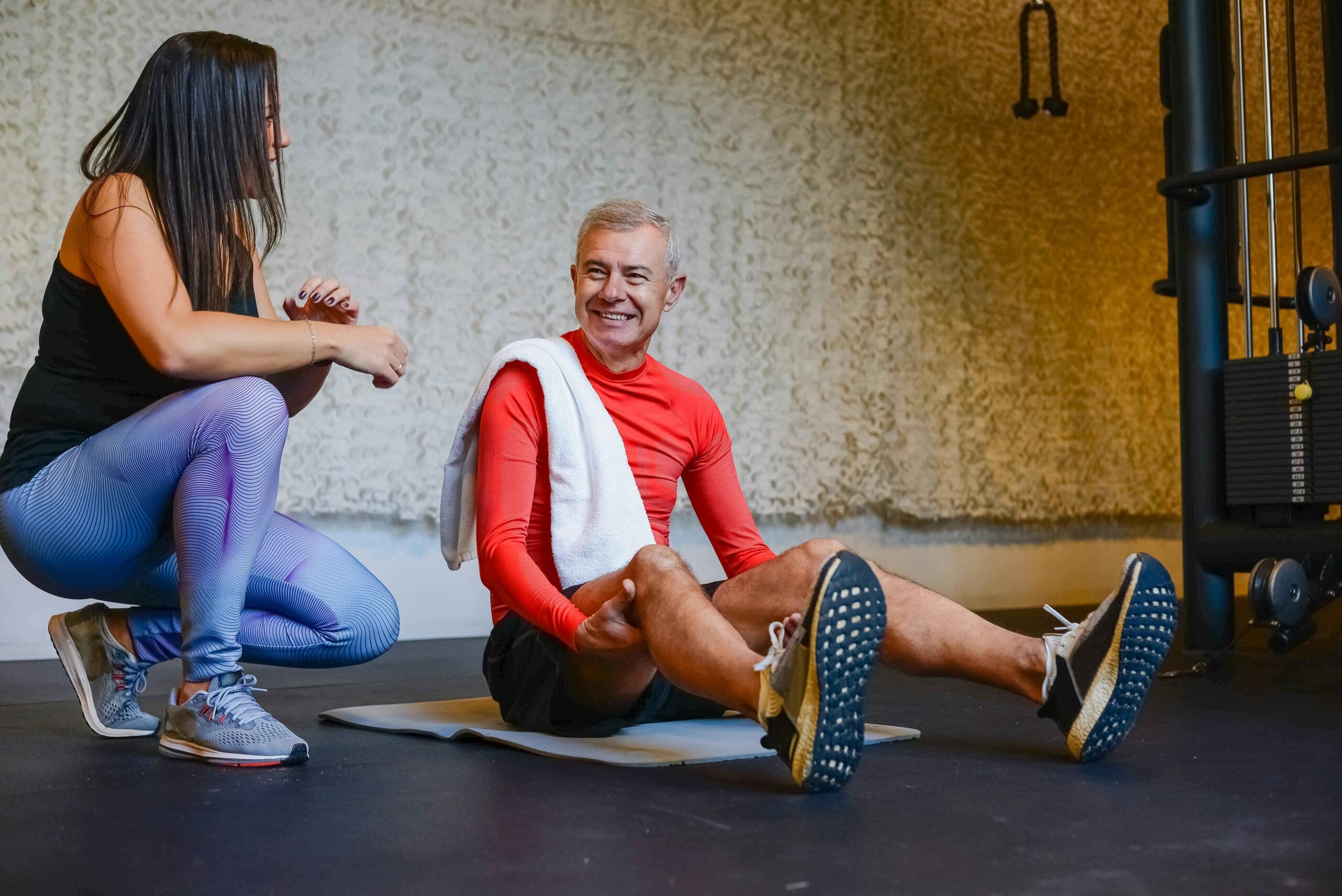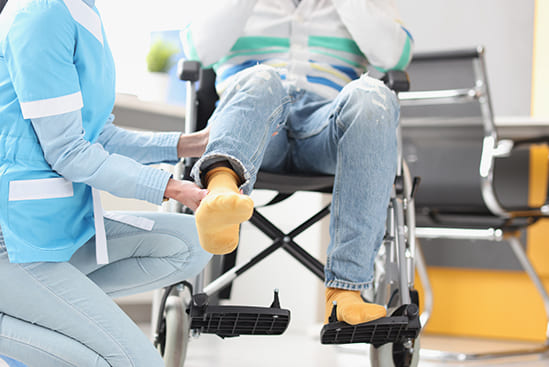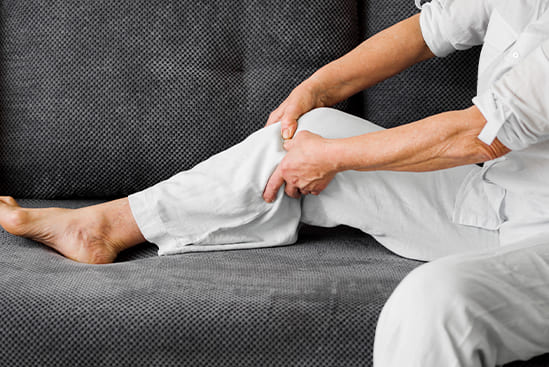
Synapse Physiotherapy
Introduction
Whether you’re a professional athlete or a weekend warrior, pushing your body to its physical limits is part of the journey. However, what separates the good from the great isn’t just how hard they train, it’s how smart they recover. That’s where sports physiotherapy comes in. Designed to optimise athletic performance, prevent injuries, and speed up recovery, sports physiotherapy has become a crucial element in every athlete’s toolkit.
Sports physiotherapy is a specialised branch of physiotherapy that focuses on issues related to sports and physical activity. It involves targeted assessment, treatment, and rehabilitation strategies to help athletes recover from injuries and return to peak performance. Nevertheless, it doesn’t stop there. Sports physiotherapists also play a critical role in injury prevention, performance enhancement, and long-term physical health.
By identifying imbalances, correcting movement patterns, and tailoring rehab protocols to specific sports, sports physiotherapy empowers athletes to train smarter, recover faster, and stay on top of their game. It’s no longer just about treating injuries, it’s about building resilience and unlocking full athletic potential.
In this article, we’ll explore the core benefits of sports physiotherapy, when you might need it, and how it supports both amateur and elite athletes in their performance journeys. Learn more about our full physiotherapy approach here.
Understanding the Role of Sports Physiotherapy
A Specialist’s Approach to Movement and Recovery
Sports physiotherapists aren’t just regular physios who happen to work with athletes. In fact, they are specialists who understand the complex biomechanics of sport, the psychological demands of competition, and the unique pressures that athletes face. Their goal? To keep athletes in motion safely and efficiently.
A typical session might include:
- Injury assessment and diagnosis
- Biomechanical and movement analysis
- Hands-on manual therapy
- Sport-specific rehabilitation exercises
- Return-to-play protocols
- Injury prevention programs
- Education and performance coaching
Therefore, this multi-dimensional approach ensures that recovery is comprehensive and performance-oriented.
Common Injuries Treated in Sports Physiotherapy
Supporting Athletes Through All Types of Physical Setbacks
From high-impact sports to endurance activities, injuries are part of the game. Fortunately, sports physiotherapy is well-equipped to handle a wide range of conditions. Some of the most common injuries include:
- Sprains and strains (e.g., ankle sprains, hamstring strains)
- Tendinopathies (e.g., tennis elbow, jumper’s knee)
- Overuse injuries (e.g., shin splints, IT band syndrome)
- Ligament injuries (e.g., ACL tears)
- Dislocations and fractures
- Post-surgical rehabilitation (e.g., after rotator cuff repair or ACL reconstruction)
By using evidence-based techniques, sports physios help athletes not only heal but also regain strength, mobility, and confidence.
Injury Prevention: The Smart Way to Train
Staying Ahead of the Curve With Preventive Strategies
One of the most overlooked but powerful aspects of sports physiotherapy is injury prevention. Rather than waiting for something to go wrong, many athletes now proactively see a physiotherapist to keep their bodies functioning at their best.
Prevention strategies often include:
- Movement screening to detect muscle imbalances or faulty movement patterns
- Sport-specific conditioning to improve strength, flexibility, and coordination
- Load management to avoid overtraining and burnout
- Education on posture, warm-up routines, and recovery techniques
Training hard is important, but training smart is what keeps you in the game.
Rehabilitation That Matches Your Sport
Tailored Recovery for Every Athletic Discipline
Every sport demands different things from your body. As a result, a football player’s rehab isn’t the same as a swimmer’s, just as a gymnast’s isn’t the same as a long-distance runner’s. Sports physiotherapy tailors recovery programs to reflect the specific movements, intensity, and goals of your sport.
For example:
- A sprinter may focus on explosive power, stride mechanics, and hamstring strength.
- A basketball player might need to work on agility, jumping mechanics, and ankle stability.
- A golfer could benefit from spinal mobility, core control, and rotational strength.
This personalised approach not only accelerates recovery but also improves performance post-injury. Consider exploring our Strength & Conditioning Programme to further enhance your rehab.
Bridging the Gap Between Rehab and Performance
Ensuring Safe Return to Play With Confidence
One of the standout features of sports physiotherapy is its emphasis on return-to-play (RTP) readiness. After an injury, many athletes rush back into training too soon, risking re-injury or long-term damage. Sports physiotherapists use structured RTP protocols to ensure that recovery milestones are met safely and gradually.
Key components of RTP may include:
- Pain-free movement and functional testing
- Sport-specific drills and simulation
- Load tolerance testing
- Psychological readiness assessment
This bridge between rehab and full sport participation is essential for long-term success and career longevity.
Tools and Techniques in Modern Sports Physiotherapy
Blending Traditional Practices With Advanced Innovations
Modern sports physiotherapy blends traditional hands-on techniques with cutting-edge technology and innovation. Some commonly used tools and methods include:
- Dry needling and acupuncture
- Taping and bracing
- Ultrasound and electrotherapy
- Cryotherapy and heat therapy
- Strength and conditioning programs
- 3D movement analysis
- Neuromuscular re-education
Together, these techniques work to accelerate healing, enhance movement efficiency, and support performance outcomes.
Who Can Benefit from Sports Physiotherapy?
Support for Athletes of Every Level and Discipline
Contrary to popular belief, you don’t need to be a pro athlete to benefit from sports physiotherapy. If you enjoy physical activity whether it’s CrossFit, running, yoga, or cycling ,sports physio can support your goals.
You might benefit if you:
- Have a recurring injury that affects your training
- Experience pain during or after physical activity
- Want to improve technique or biomechanics
- Are you recovering from surgery or a serious injury?
- Need guidance for returning to sport after time off
- Want to reduce your risk of injury while training
Sports physiotherapy meets you where you are and helps take your performance to the next level.
Frequently Asked Questions (FAQs)
1. How soon should I see a sports physiotherapist after an injury?
Ideally, you should see one as soon as possible to minimise complications and promote a faster recovery.
2. Can sports physiotherapy help with chronic pain from past injuries?
Yes, physiotherapists can help manage chronic pain and restore mobility even from old injuries.
3. Do I need a referral to begin sports physiotherapy?
No referral is needed, many clinics welcome self-referring patients.
4. How long does a typical sports physiotherapy session last?
Most sessions last between 30 to 60 minutes, depending on your treatment plan.
5. What should I wear to a physiotherapy appointment?
Wear comfortable, athletic clothing that allows for movement and access to the injured area.
Train Hard, Recover Smart
Pushing your limits is part of what makes sport so rewarding. But it’s the ability to recover, adapt, and come back stronger that defines long-term success. Sports physiotherapy is more than injury treatment, it’s a holistic strategy for performance, prevention, and longevity.
By integrating the science of movement with the art of rehabilitation, sports physiotherapy enables athletes at every level to pursue their passions with confidence. Whether you’re chasing personal bests or standing on a podium, remember this: your recovery is just as important as your training. So train hard, but recover smart. Discover how Synapse’s sports physiotherapy services can help elevate your performance today.
Tags :

Back & Neck Pain
Conditions such as stiffness, postural abnormalities and muscle overuse from prolonged desk work at the office or home is more prevalent than most would think. We provide the necessary tools to fix you up and educate you on ergonomics which can unload unnecessary stress.
- Spine & Core Rehabilitation
- Strength & Conditioning Programme
- Pain Management
- Biomechanical Assessment
- Sports Physiotherapy
- Group Class

Sports Injuries
Rolled ankles, jarred knees, impinged shoulders are few conditions in the plethora of sports injuries which can hamper performance and limit our enjoyment of sports. Physiotherapy not only treats the symptoms of these conditions but propels your overall fitness to greater heights.
- Strength & Conditioning Programme
- Pain Management
- Biomechanical Assessment
- Sports Physiotherapy
- Shockwave Therapy
- Group Class

Work Desk Injuries
Conditions such as stiffness, postural abnormalities and muscle overuse from prolonged desk work at the office or home is more prevalent than most would think. We provide the necessary tools to fix you up and educate you on ergonomics which can unload unnecessary stress.

Pre-Post-Surgical Conditions
Surgery involves going through preparation both before and after. Physiotherapists play a vital role in getting your body ready for surgeries with circulatory, breathing and strengthening exercises. After the procedure, let us be there for your recovery and rehabilitation, taking it one step at a time.

Scoliosis & Postural Abnormalities
The way we stand, sit, walk and sleep has influence over our posture and the overall balance of muscles controlling its alignment. A comprehensive screening can be done by our physiotherapists to detect abnormalities, which we will aid in correcting.

Neurological Conditions
Neurological disabilities such as stroke, nerve compression and neuropathies can be barriers for patients to live life to its fullest. We at Synapse are committed to help you overcome these hurdles by ensuring functional mobility and quality of life is at its optimum by providing the right treatment and exercises.

Osteoarthritis & Rheumatism
Joint degeneration and inflammation happens as the human body grows older, but that does not mean our way of life degenerates as well. Relief your joint pains with a joint effort together with your physiotherapist, who will provide pain-relief treatments and prescribe exercises for your wellbeing.

Conditions Relating To Elderly
Common conditions in the older age population include hips & knee pain, back & neck pain, osteoarthritis, rheumatism, fear of falling and many more. Aging and degeneration of bodily function is inevitable, but here at Synapse, we will help you live the best of your life.

Home Physiotherapy
We understand that some conditions or injuries can make it difficult to receive rehabilitation at our clinic be it mobility or transportation issues. Our objective is to provide you with the same high-quality physiotherapy services at home that you would receive in-clinic.
